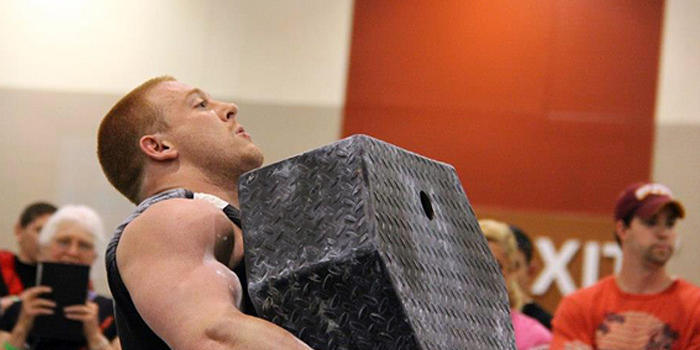
I’m going to talk about the least discussed aspect of Strongman. For some reason, no one talks about how to run a great contest. We've all heard about how awful a particular show was run, and we’ve also heard about promoters who run the best contests. But seldom do we ever hear or discuss the things that make each show great or terrible. It seems odd to me that this isn't discussed very much considering that the ultimate reason everyone trains is to compete. Therefore, we need good shows to compete at!
Be sure to test all the events before the contest: I can’t count the number of times I've been at a contest and the promoter is pulling equipment out of the wrapper. The events are untested, and they're either far too light or far too heavy. A good rule of thumb is that you should never have more than one or two people in a class getting more than 10 reps. If the whole class is getting that, the weights are too light. On the other hand, if half the class is zeroing out in the event, the weights are too heavy.
WATCH: The One-Motion Log Pressing Technique — Why and When to Use It
Make sure you get a representative group of athletes to test everything. One way to do this is to hold open training days for the athletes to compete on the equipment. If you don’t have a wide variety of competitors who train at your facility, this is a way to see how the general population will perform on the events. The only exception to this rule is the novice class. The novice weights have to be lighter. You'll see higher reps because you’ll get such a wide spread of athletes and you have to cater to the bottom of the group. You can't have a bunch of zeroes in the novice class because you'll be discouraging future athletes from competing.
Recruit experienced help to judge, load weights and keep score: Make sure that the helpers you get have actually competed before and have been around a while. This way they'll know what the general expectations are and there will be much less confusion.
Sometimes guys are strapped for help and they just take whoever volunteers. While their intentions are good, inexperienced volunteers can really screw up a contest unintentionally. They may set something up incorrectly, record a score incorrectly or simply provide the wrong answer to a competitor's question. Competitors will ask questions about how an event is being run regardless of how thorough you make your rules' meeting. If they ask the wrong volunteer without realizing it, they could get really screwed up. Dealing with their dissatisfaction after the fact is a total nightmare.
If you have more than a certain number of competitors, keep the events simple: There isn't any iron clad rule here in terms of absolute numbers because many factors affect how many athletes your contest can host. However, I like the rule of 30 as a simple guideline. For every 30 competitors, you need to have another set of equipment. This allows 30 minutes of actual competing and 45 minutes for setup between competitors. An event should take no longer than 90 minutes and some events will move much faster than that.
Always plan for the event to take the absolute maximum amount of time so that you’ll be aware of what the absolute worst situation can be.
Keep the weight classes simple: Qualifications for nationals are set up so that an athlete has to qualify in the weight class he wishes to compete in for nationals. This means you’ll get many athletes asking you to change the classes for them so that they can get their qualifications.
When I first started promoting events, I made a mistake with this. Doing this made things far more complicated. Athletes often plan on competing in a class and then, when dieting doesn't go their way, they can’t make weight and they change classes. So even two weeks out from the show when you think you have the minimum number of athletes, things will still change. This ruins the contest for those competitors who usually compete in a certain class because now they're competing against only three people. While some athletes will readily take that easy qualification, believe it or not, most are disappointed when that happens. The deeper a class is, the more competitive it is. That will also make your contest stand out and people will want to compete there because they know that the best will come out.
Let the competitors know that you mean business: At the rules' meeting, be clear about how each event will be run, and stress the importance of being careful and respectful with the equipment. When you’re going over the rules, think of all the crazy things that might occur during the course of the show. This way, when they happen, no one is surprised with the outcome. Each person knows ahead of time that if X happens, Y happens. So while they may be disappointed, there aren't any arguments over that. If you don't announce the result and then it happens, the competitors might not like your judgment call. That’s what can get you into trouble.
This is a pet peeve of mine, but ask that athletes respect your equipment. I know many people don’t care if their equipment gets tossed around, and that’s fine in the gym. But at a contest, you can’t have that going on. I’ve seen several times where the implement breaks and the rest of the class is screwed because they have to use a different implement or, even worse, the class has to do the event again. This is just a respect thing, not only to the promoter but also to the other athletes.
Pick a convenient and comfortable venue with parking and more than one bathroom: Rent Port-o-Johns if you have to, especially if the contest is being held at your own place. Choose a venue that matches your contest size. The worst thing that you can do is underestimate the amount of people who will be showing up. You’ll have issues with crowding, parking and bathrooms.
You need to have enough bathrooms because athletes need a place to change. They really need their own restroom. If that isn't possible, you need to have enough restrooms available so that they don’t have to wait to use the restroom. You don’t want a last minute bathroom break to cause an athlete to miss an event.
EXERCISE INDEX: Car Squat Simulator
Hold your contest to nationals' standards (e.g. judging and weight selections): This one is big. Unless you're hosting a contest with the intention of only having new athletes, your contest needs to have weights and judging that is relevant to nationals. If you aren't sure what that means, you probably shouldn’t be hosting a show, but make sure to ask somebody who does know.
You can't have weights so light that a competitor qualifies easily and then goes to nationals and zeroes the weights. Set up the events so that any competitor who qualifies at your show is ready to compete on the national stage. That doesn’t mean that you have to use nationals' weights, but make sure they’re relevant. For example, last year's nationals had a 180-pound axle for the heavyweight woman. If you have a 90-pound axle, that won't help the person who qualifies. You may give her false hope that she can be competitive. Every time I’ve been at nationals, I see athletes who bomb every event. Everyone questions how they qualified.
Be sure that you have strict judging as well. At local contests, oftentimes the judge is judging for a buddy. He doesn't want to screw him up, but trust me—you're screwing him more by being lenient. When he gets to a national level show where the judging is strict, it will be a huge wake-up call for him. At my contests every year, I announce that if you win my show, you'll be competitive at nationals. I take pride in sending the best competition to nationals. They always do very well.
Get sponsors involved and promote the heck out of the show: Sponsors donate money that will help you offer more at the contest. Sometimes sponsors will donate products that you can give away to the athletes. It's a nice thing to do and shows the athletes that you appreciate them coming out to compete. Sponsors also want people to see that they are supporting the contest, so they'll also promote because they want more views of their logos. The more sponsors you have, the more you'll get the word out.
Contests with a high number of spectators are always much more exciting. It also makes the novice competitors feel really good as well. Some of them will never compete at a high level, so when there are prizes and nice trophies and a huge crowd cheering for them, it makes them feel like this is the big time. In my opinion, that’s what this is all about. Sure, I love watching the best athletes compete at my shows, but I also love introducing new competitors and ensuring that they have a positive experience so they'll come back.
Photos via Chase Karnes










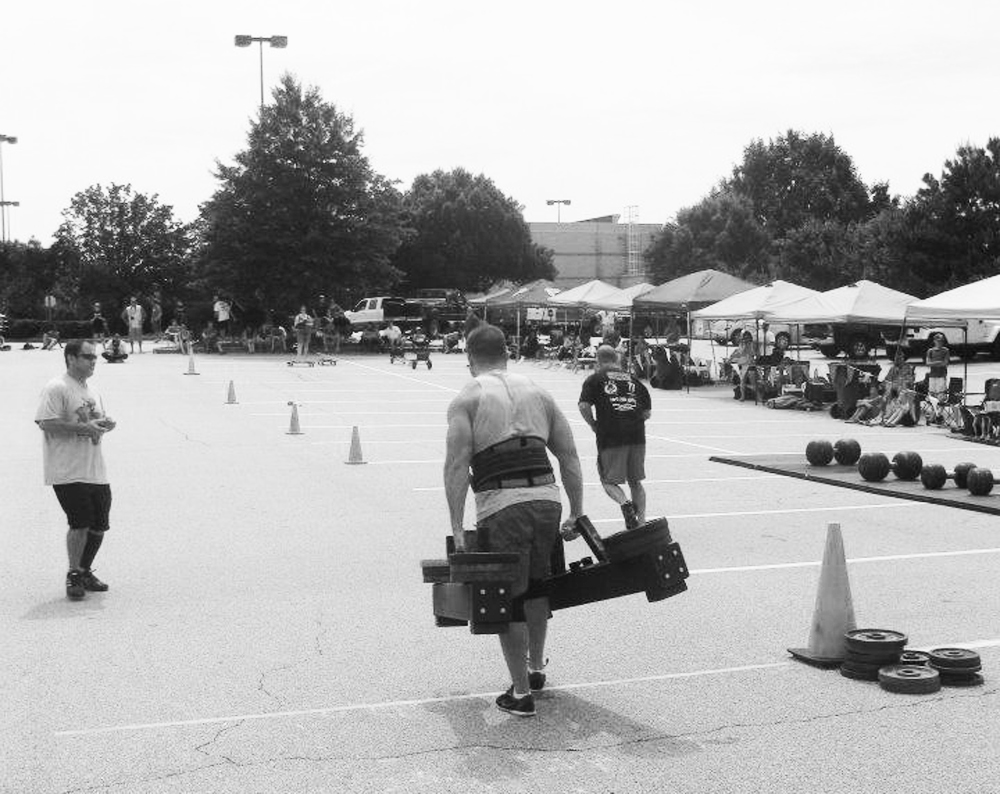
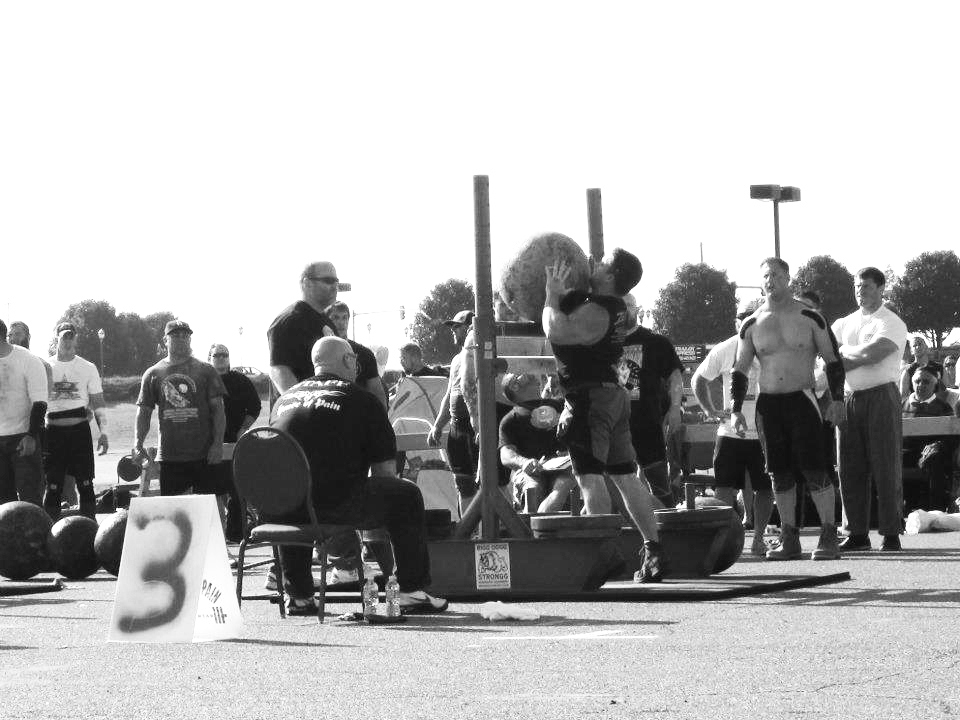
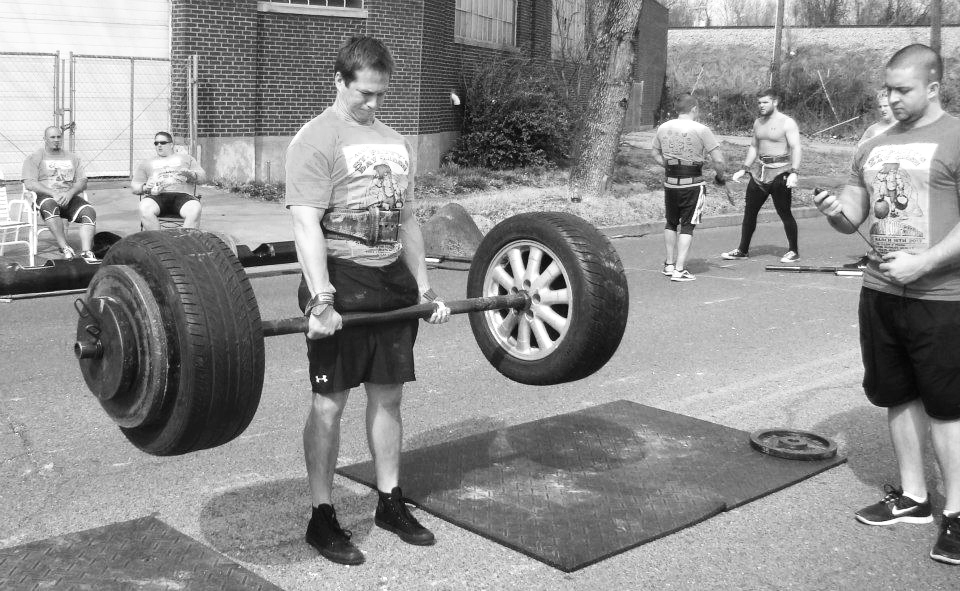
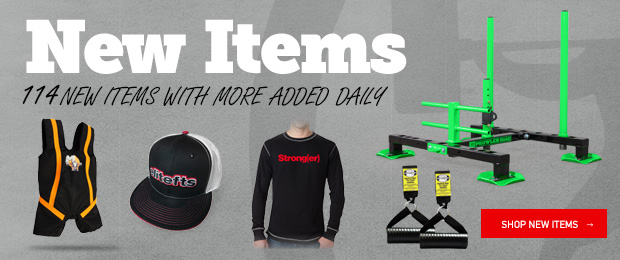
I would check out nastrongman.com. Reach out to Dione. She sanctions contests internationally. If you go to the events page and look through you'll see contests being hosted globally on the site.